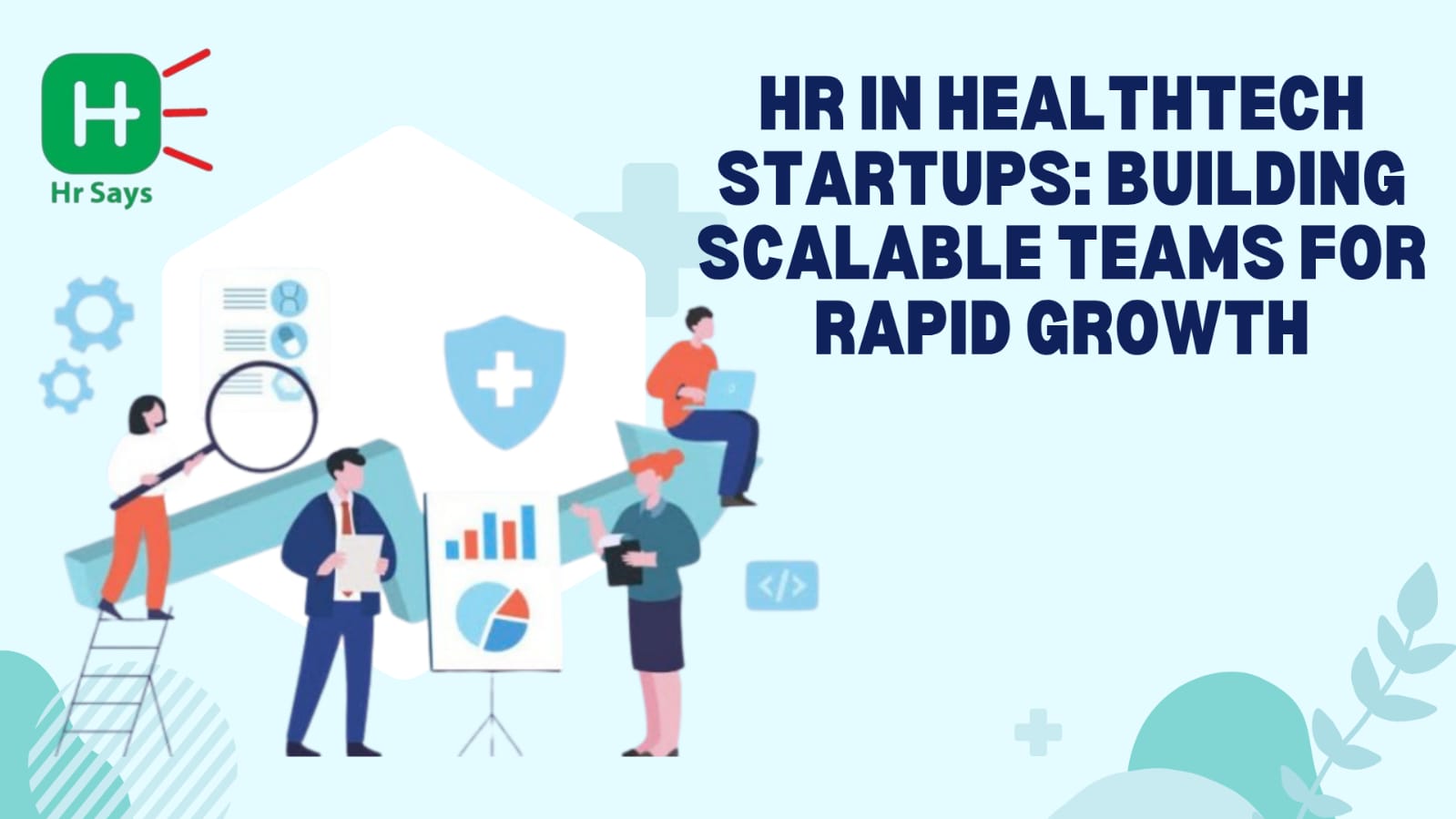What happens when healthcare meets hypergrowth? HealthTech startups are discovering that building scalable teams isn't just about speed—it's about purpose. And structure. And staying human in the rush.
Speed Heals Nothing Without Strategy
Hiring fast is easy. Hiring right isn’t. Especially when you're juggling:
● Telemedicine rollouts
● Remote patient monitoring solutions
● Digitization of clinical operations
● EMR and HIS implementations
Hospitals and clinics adopting Health Information Technology don’t just need coders. They need teams that understand patient experience, compliance, and hospital management—all at once.
The pressure to grow is real. But teams thrown together often fall apart. That’s where HR must step in—not as admin, but as an architect.
From Hustle to Harmony: The New HR Role
HR in HealthTech must shift from operations to impact. That means less hiring based on degrees. More based on ability. Because the need of the hour isn't resumes—it's readiness.
A scalable team in HealthTech shares:
● A strong grasp of healthcare IT nuances
● Cross-functional awareness (tech, clinical, and patient needs)
● Comfort with fast changes
● Clarity in chaos
To build such teams, HR leaders must:
● Design flexible role structures
● Map skills, not just job titles
● Create continuous upskilling pathways
And yes, that means moving beyond old hospital staffing models. Because what works in an ER doesn’t always fit a digital health dashboard.
What Breaks First in Hypergrowth
Let’s be honest. In fast-scaling HealthTech, this is what usually goes wrong:
● Training becomes an afterthought
● Compliance gaps widen
● Culture dilutes across new hires
● Burnout spikes as teams grow lopsided
When clinical teams feel unheard. When tech teams feel overwhelmed. And when patients sense it all. That’s when patient experience suffers.
HR must catch these signs early. Not with reports. With people-first systems.
Building with Both Head and Heart
So, what does scalable HR in HealthTech look like?
● Structured onboarding for both tech and clinical hires
● Remote-ready systems that support telehealth and hybrid work
● Shared values across roles—from EMR developers to care coordinators
● Data-informed decisions using simple people metrics
Also, empathy matters. Healthcare is human. Even in its digital form.
Teams must reflect that—at every level.
Conclusion
Growth in HealthTech won’t slow down. But poorly scaled teams will slow everything else. HR isn’t just part of the backend—it’s part of the solution.
Because in a startup racing to change lives, the team behind the tech is what truly defines success.

 Scaling in HealthTech is tricky. Between patient needs and tech demands, hiring can’t afford to fail. HR must evolve fast—matching speed with structure.
Scaling in HealthTech is tricky. Between patient needs and tech demands, hiring can’t afford to fail. HR must evolve fast—matching speed with structure.








.jpeg)
.jpeg)

.jpeg)





.jpeg)



.jpeg)

.jpeg)



